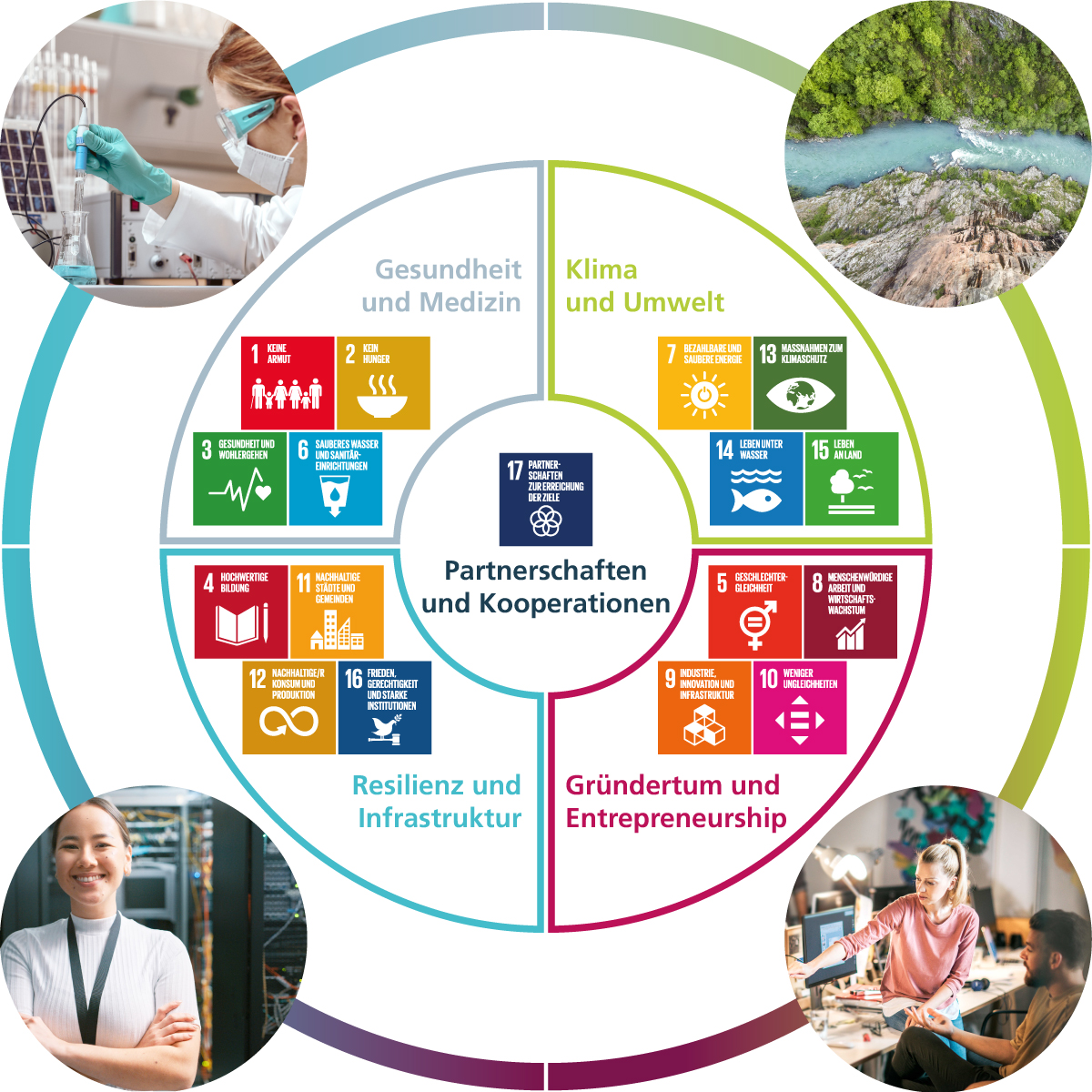We live in an era when huge societal challenges are shaping our daily lives more and more. Far-reaching changes are needed across various areas of society if future generations are to continue to live in an ecologically intact, socially equitable, and economically viable world. And time is growing short.
The 2030 Agenda was adopted in 2015 as a global plan for the transformation of our society and economy to protect the planet. The 17 United Nations Sustainable Development Goals (SDGs) are aimed at everyone: the science and research sector, society at large, government, industry, and everyone who makes up our communities.
The SDGs have been of strategic importance within the Fraunhofer Future Foundation since 2020. That was when we moved away from selecting our projects based solely on current questions relating to the future and on the expertise and skills of the Fraunhofer-Gesellschaft. The SDGs are now the most important criteria.
Taking the SDGs and the core competencies of the Fraunhofer-Gesellschaft as a basis, we have defined four sustainability areas. It is clear that we can only achieve the SDGs and transform our economy and society if we work together through global collaboration and effective cooperation.
To implement the 2030 Agenda in Germany, as in other countries, the German federal government adopted the German Sustainable Development Strategy in 2016 and updated it in 2018. The strategy identifies the contributions that are already being made to the Sustainable Development Goals (SDGs) and those that are yet to come. It covers a full range of sustainability-related topics, from higher educational attainment to shrinking the gender wage gap and from safeguarding social housing to trade opportunities for emerging economies.

